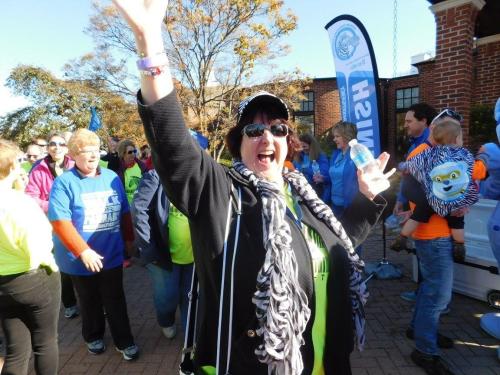
-
Understanding primary immunodeficiency (PI)

Understanding PI
The more you understand about primary immunodeficiency (PI), the better you can live with the disease or support others in your life with PI. Learn more about PI, including the various diagnoses and treatment options.
-
Living with PI
-
Addressing mental health
-
Explaining your diagnosis
- General care
- Get support
- For parents and guardians
-
Managing workplace issues
- Navigating insurance
-
Traveling safely

Living with PI
Living with primary immunodeficiency (PI) can be challenging, but you’re not alone—many people with PI lead full and active lives. With the right support and resources, you can, too.
-
Addressing mental health
-
Get involved

Get involved
Be a hero for those with PI. Change lives by promoting primary immunodeficiency (PI) awareness and taking action in your community through advocacy, donating, volunteering, or fundraising.
-
Advancing research and clinical care
-
Research Grant Program
-
Consulting immunologist
-
Diagnosing PI
-
Getting prior authorization
-
Clinician education
-
Survey research
-
Participating in clinical trials

Advancing research and clinical care
Whether you’re a clinician, researcher, or an individual with primary immunodeficiency (PI), IDF has resources to help you advance the field. Get details on surveys, grants, and clinical trials.
-
Research Grant Program
Living with primary immunodeficiency (PI) demands that you address healthcare needs and all too often, those demands can eclipse taking time to process and nurture your emotions. Because physical health and emotion are intertwined, and one impacts the other, it's crucial to take intentional steps to maintain your mental health as you move along in your PI journey.
“The Connection Between Mental and Physical Health,” an IDF podcast presented by Dr. John Seymour, explores the challenges faced by those diagnosed with PI and offers specific ways to navigate those hurdles and improve the strength of both body and mind.

A family therapist for more than 40 years focused on children, adolescents, and their families, Seymour has a wife and daughter with PI. He has served as an IDF volunteer for over two decades, recently retiring as a member of the IDF Board of Trustees. Throughout much of his time in clinical practice, university teaching (he is an emeritus professor and distinguished faculty scholar at Minnesota State College), clinical supervision, and research, Seymour has explored the concepts of resiliency and coping with chronic illness.
PI creates permanent stress in a person’s life, said Seymour, and causes pain, discomfort, and loss. The diagnosis requires a lifetime of medical monitoring and sometimes is accompanied by additional health conditions – all of which generate medical expenses. PI brings unpredictability because, at one moment, a person may feel fatigued, and later, they regain their energy. Disruption occurs not only in a person’s day but in the long term, causing uncertainty in starting a new job or school – and even in family planning.
One of the most challenging aspects of PI is the seeming invisibility of the disease.
“Often times PI is an illness where we don’t look like we’re incapacitated, but, on the inside, that person is very aware of being incapacitated, and it causes a lot of difficulty being around people who really don’t notice or understand how much you might be going through,” said Seymour.
When our body changes, so do our thinking, our feelings about ourselves, our behavior, and how we relate to other people, compounding the stress.
“We now feel like we not only have an illness to contend with, but relationship concerns to deal with, thought concerns, and behavior issues to contend with,” said Seymour.
The best way to approach the seemingly overwhelming cycle of physical health leading to poor mental health resulting in weakened relationships is to reduce risk factors and increase protective factors. Follow trusted sources of information pertaining to physical and mental health, create a self-care plan early on in diagnosis, and find trusted family members or friends who support you.
“Resilience is that powerful force we can muster within ourselves to get through challenging situations,” said Seymour.
Guidance for rebuilding mental health includes:
- Lower anxiety to improve problem-solving
- Lessen self-blame
- Reduce blame from others through education
- Decrease isolation by building and enhancing relationships
- Find creative play opportunities like art or music
- Rely on personal, philosophical, or faith resources to give life meaning
Improving mental health can begin with simple steps. Get enough sleep, eat nourishing foods, engage in regular physical activity, seek consistent medical care, and participate in mindfulness and meditation. You can also prevent stress when you tune out the news, limit time around critical people, keep a journal, listen to music, and connect with loved ones virtually.
Finally, you may find that boosting someone else’s life will improve your own.
“No matter how much you are hurting, find ways to care for others. In caring for others, we connect with an important part of ourselves,” said Seymour.
Listen to “The Connection Between Mental and Physical Health.”
Topics
Sign up for updates from IDF
Receive news and helpful resources to your cell phone or inbox. You can change or cancel your subscription at any time.





The Immune Deficiency Foundation improves the diagnosis, treatment, and quality of life for every person affected by primary immunodeficiency.
We foster a community that is connected, engaged, and empowered through advocacy, education, and research.
Combined Charity Campaign | CFC# 66309




